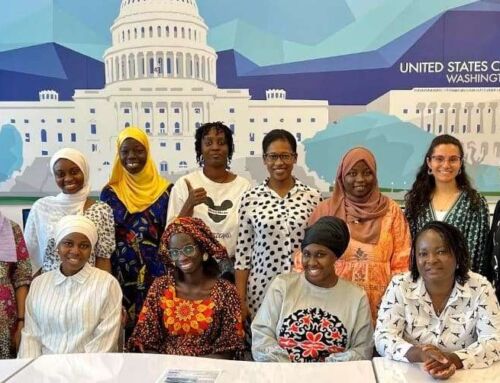Use this guide to prioritize your “to-do” list as you start working on your Foreign Affairs Information Technology Fellowship application. This article helps to ensure you don’t miss any steps and provides tips for a smooth application process.
- Read the Eligibility Requirements and the Overview of Clearances in the application closely. Make sure you’re clear on what the program entails and what’s required of you.
- Reach out to the individual from whom you plan to request a Letter of Recommendation (LOR), to ensure they are willing to write the letter and they have plenty of time to craft the letter. In the application, you will add the name and email address of your recommender, which will trigger an immediate email to them requesting the LOR. Remember: If you‘ve been in school in the past two years, the letter must come from a professor or faculty member. Otherwise, select someone who is familiar your academics, professional work, or volunteer/community activities.
TIP: A personal letter from someone who knows you well will be much stronger than a letter from a well-known person, who doesn’t know you very well!
- Request your unofficial school transcripts for all institutions you’ve attended for two semesters or more. Don’t forget to include study abroad or college exchange programs.
- Start working your Personal Statement (750 words or less). Read the article on Tips for Writing an Impactful Personal Statement to help you develop a first draft. Ask a friend, professor, or mentor for feedback, and continue honing your statement until you are ready to submit the application.
- Start working on your resume. Read the article on Highlighting Leadership Skills in Your Resume When You Lack Work Experience. Ask your mentor or your college’s Career Services Office to proof your resume and provide feedback.
- While you are waiting for feedback on your Personal Statement and Resume, and waiting for your Letter of Recommendation, collect the rest of the documents that you need:
- FAFSA Submission Summary generated from the 2024-25 FAFSA Form.
- You can access all of your Federal financial aid information by logging into your account at studentaid.ed.gov.
- If you’ve been out college and are returning for graduate school, you should complete the 2024-25 FAFSA Form so that you can generate a FAFSA Submission Summary for the FAIT Fellowship application.
- Financial Aid Award Letter.
- If you are in college when you are applying for the FAIT Fellowship, you will also need a copy of your financial aid award letter for the current academic year.
- You may be able to access this via your school’s online portal, under financial aid or student payments.
- If you’re having trouble locating your financial aid award, reach out to your Financial Aid Office on campus and they will be able to print and/or send you a new one.
- FAFSA Submission Summary generated from the 2024-25 FAFSA Form.
- The selection panel factors economic status into the selection process. It is interested in learning of backgrounds that show financial disadvantage or applicant’s need to secure non-family economic assistance to college. There are many different manifestations of financial need, including reliance on grants and loans as an undergraduate student, accumulation of significant student debt, the need to work while in school, lack of family resources, choice of less expensive schools, and/or discontinuation of family support for tuition. Applicants can help the selection panel to understand their financial situation in the following ways:
- Answering financial questions in the application, based on the information in the FAFSA. Applicants should use financial data in the most recent FAFSA per FAFSA requirements.
- Submitting the FAFSA Submission Summary generated from the FAFSA Form. You must use the current academic year FAFSA Form.
- Submitting documentation from your university that shows financial assistance you received during your undergraduate years (if applicable).
- Writing a statement that explains your situation – focusing specifically on financial need. The most useful statement clearly and concisely explains your need for financial assistance for undergraduate or graduate school and any plans for covering these costs. Use quantitative data whenever possible, including specific data on financial assistance received during undergraduate school and outstanding education-related debt. You can highlight overall family economic status, as well as your personal situation, e.g., work during school, low-paid service positions, or financial obligations. This is your chance to make your case. Your statement must be no more than 400 words.
TIP: Ensure your attachments are saved as PDFs.
- Share who inspired you. If you have specific names of DIRs (Diplomats in Residence), Department of State staff, faculty or advisors, or FAIT Fellowship staff who inspired or encouraged you to apply, please list them. We want to thank them!






